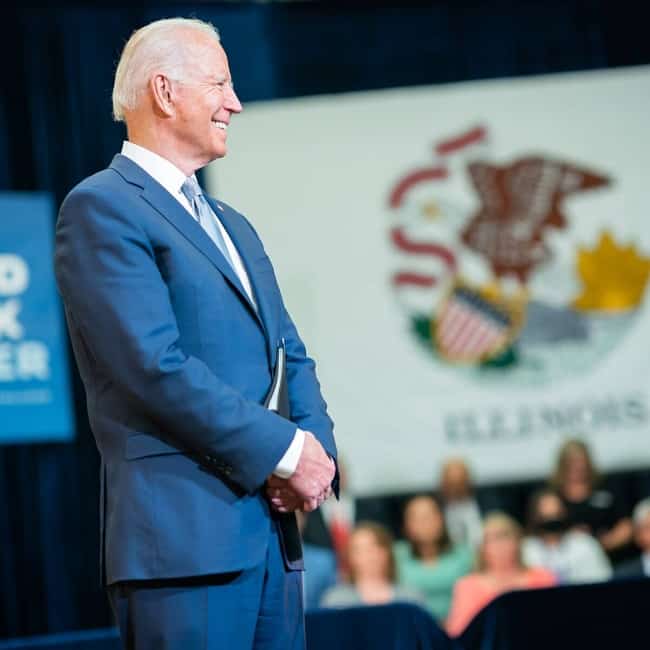
Opinion
Op-Ed first published in the Wall Street Journal
Even Democrats and their media allies now acknowledge that the Biden administration’s handling of Afghanistan has been a debacle. The horrifying, heartbreaking pictures are impossible for Americans, our allies or our enemies to forget.
Set aside the question of whether the U.S. should have left. (I say no; Presidents Biden and Trump were both wrong in advocating withdrawal). Either way, it’s clear Mr. Biden didn’t plan even minimally for the secure evacuation of U.S. Embassy staff, American citizens or Afghan allies. It took until Wednesday for the administration to estimate how many Americans are in-country, offering a number which was far below previous reported estimates and that Secretary of State Antony Blinken still characterized as “likely to be out of date by the time we leave this briefing room” when he announced it to the press. The Biden administration’s execution of the Special Immigrant Visa program for Afghans who fought alongside us was a slow-moving disaster. It was also a grave betrayal.
There was clearly no close consultation with allies, no response to the Taliban’s moving to topple the Afghan government, and no plan to retrieve sophisticated U.S. war-fighting equipment. Inexplicably, what kept the Taliban in check—the threat of Americans flying out from Bagram Air Base to rain down hell—was among the first instruments of U.S. power to be withdrawn.
Our rivals—China, Russia and Iran—are gleefully demolishing any remaining American influence in the region, while our radical Islamist enemies are exulting at victory over the Great Satan and enjoying a huge recruiting boost.
This disaster has revealed grave structural weaknesses in the administration, from Mr. Biden to his White House staff to his cabinet.
A president sets the tone for his administration by how he acts, what he requires of subordinates, and what practices he insists on. Apparently, Mr. Biden didn’t require detailed planning for this major policy initiative. He announced his goal—the U.S. out of Afghanistan on the 20th anniversary of the 9/11 attacks, later changed to Aug. 31—but the execution was supported only by wishful thinking.
Done right, this sort of military withdrawal would have required the president to insist on robust, cross-agency planning. It appears he didn’t. Mr. Biden should have asked tough questions about what was needed for the Afghan government to hold on or to form an agreement to protect human rights if it couldn’t. He didn’t. Regular briefings—on the intelligence on the ground, reactions of allies, status of the planning—were necessary. But were they held? And if they were, did the president pay attention to them? It certainly doesn’t look like it.
Then there’s the White House staff. If they’re worth their salt, they need to anticipate possible challenges to the president’s goals, not just react to each crisis. They must supervise successful interagency planning, pushing cabinet officials to bring disagreements to the surface, and present options to the president. They must juggle simultaneous challenging events, husbanding the president’s time and building the nation’s confidence in him by making certain he appears in charge—and hopefully is. In the case of Afghanistan, none of this seems to have been done—or done well—by the Biden team. That’s not reassuring as to their ability to handle the next crisis, which is sure to come.
Finally, there are Vice President Kamala Harris and the cabinet. With the exception of steering Mr. Biden away from his original 9/11 target date, they haven’t apparently told him bad news, raised thorny questions, or demonstrated industriousness in executing their parts of the administration’s policy. There’s scant evidence that planning the Afghanistan retreat dominated their schedules, thinking or energy.
Why didn’t the State Department ramp up the special visa program for Afghan allies when Mr. Biden announced the withdrawal April 14? Where were Pentagon leaders in devising a sensible plan for withdrawal of troops and war materiel in a way that safeguarded the civilian evacuation and gave Afghans a chance to survive a Taliban onslaught? Where was the interagency process critical to keeping the government coordinated? If the White House didn’t demand such a process, why didn’t appropriate cabinet members?

Karl Rove served as Senior Advisor to President George W. Bush from 2000–2007 and Deputy Chief of Staff from 2004–2007. At the White House he oversaw the Offices of Strategic Initiatives, Political Affairs, Public Liaison, and Intergovernmental Affairs and was Deputy Chief of Staff for Policy, coordinating the White House policy-making process.
Mr. Rove has been described by respected author and columnist Michael Barone in U.S. News & World Report as “…unique…no Presidential appointee has ever had such a strong influence on politics and policy, and none is likely to do so again anytime soon.” Washington Post columnist David Broder has called Mr. Rove a master political strategist whose “game has always been long term…and he plays it with an intensity and attention to detail that few can match.” Fred Barnes, executive editor of The Weekly Standard, has called Mr. Rove “the greatest political mind of his generation and probably of any generation. He knows history, understands the moods of the public, and is a visionary on matters of public policy.”
Before Mr. Rove became known as “The Architect” of President Bush’s 2000 and 2004 campaigns, he was president of Karl Rove + Company, an Austin-based public affairs firm that worked for Republican candidates, non-partisan causes, and non-profit groups. His clients included over 75 Republican U.S. Senate, Congressional, and gubernatorial candidates in 24 states, as well as the Moderate Party of Sweden.

